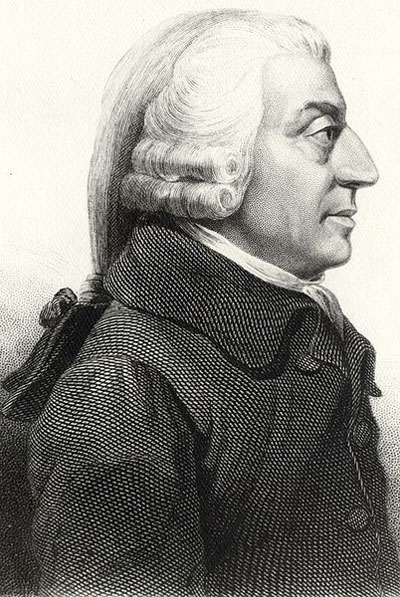
Source: AdamSmith, Wikimedia

Source: AdamSmith, Wikimedia
A Scottish philosopher and economist named Adam Smith disagreed with the mercantilist idea of fixed wealth. He believed that the world's wealth is unlimited and that if industry is allowed to grow unhindered by government regulations, everyone benefits. Smith explained his revolutionary ideas in his book, An Inquiry into the Nature and Causes of the Wealth of Nations (commonly referred to as "The Wealth of Nations").
Smith called this new form of economy a "Free Enterprise Economy" meaning that individuals would be free to operate their businesses as they see fit without the government telling them what to do.
![]() Click on the book and then on each phrase below to learn about the "Natural Laws" that Adam Smith said should govern the economy.
Click on the book and then on each phrase below to learn about the "Natural Laws" that Adam Smith said should govern the economy.
Source: Wealth of Nations title, Adam Smith, Wikimedia
Smith felt that by allowing businesses to grow and specialize in what they are good at (without government intervention), each nation could create its own wealth and could then trade for the goods that it needed. This way all nations would become wealthier, and there would be no need to take wealth from other nations.